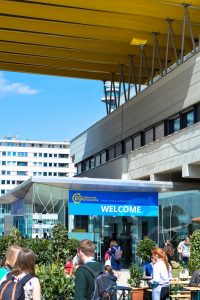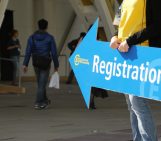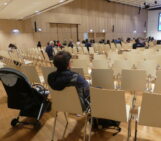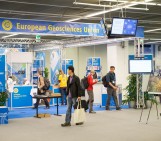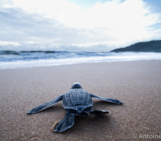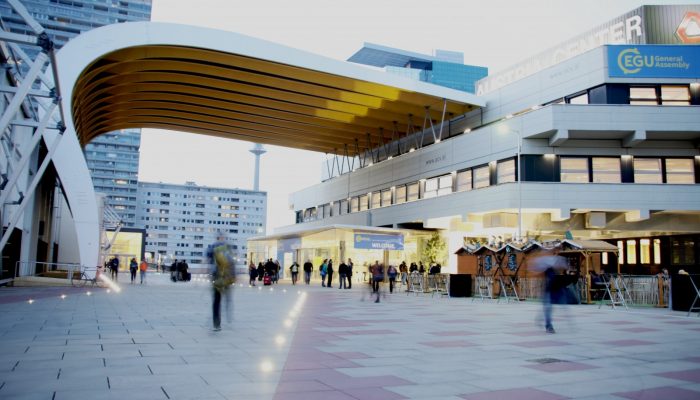
Welcome to the 2019 General Assembly! This is the first full day of sessions and there’s a feast of them to choose from. Every day we’ll be sharing some super sessions and events at EGU 2019 here on GeoLog and you can complement this information with EGU Today, the daily newsletter of the General Assembly.
Union-wide sessions
Of particular importance today is the Union’s Plenary Meeting (PCN2) at 12:45 in Room E1 – it’s a forum for all Assembly attendees to discuss the development of the Union with the Union Council. Seeing as it’s over lunch, free snacks and soft drinks will be served at the event.
Monday is also kicks off the first Science in Society session at the General Assembly: Plastics in the Hydrosphere: An urgent problem requiring global action (SCS2: 14:00–17:45 in Room E1). This session will address the problems posed to our planet by plastic pollution, and examine options for dealing with the threat. It’s not one to miss! You can also follow the session on Twitter (#EGU19SCS).
In the evening, the EGU Booth will be holding a journal reception celebrating 25th anniversary of EGU’s open access journal Nonlinear Processes in Geophysics (NPG) from 18:00–19:00 (PCN9).
Great debates
This year’s Great Debates will hit the ground running today with a session that addresses Science in policymaking: Who is responsible? This debate will feature a mixed panel of policymakers and geoscientists who have previously given scientific advice. Some key questions that the panel will debate include:
- How can the accessibility of current EU science-advisory mechanisms be improved?
- Are scientists doing enough to share their research?
- And who is responsible for ensuring that quality scientific evidence is used in policymaking?
Join in the debate from 10:45–12:30 in Room E1. Seating is limited so make sure to arrive early to guarantee a spot! You can follow the session on Twitter with #EGU19GDB, and, if you’re not attending, tune in with the conference live stream.
Short courses
The conference can be daunting, especially for first time attendees. For tips and tricks on how to navigate the General Assembly and to learn more about the EGU, why not attend SC2.1: 08:30–10:15 / Room -2.16. The conveners of the short course will then be available in the Networking & Early Career Scientists Zone (Red Level) from 10:30 to 11:00 to answer your questions! Remember you can also consult the first timer’s guide for more information.
There are several short courses kicking off a week of exciting workshops. You can supercharge your data analysis skills in Mapping and modelling the environment at different scales (SC1.43: 08:30–10:15 / Room -2.85). You can also pick up some advice on peer-reviewing from the experts at How to peer-review? (SC1.31: 16:15–18:00 / Room -2.85).
The ADVANCEGeo Workshop (SC3.3: 14:00–15:45 / Room -2.31) offers participants the opportunity to discuss strategies for improving the workplace environment in the geosciences.
Presenting at a scientific conference can be daunting for both early career and established scientists. Fortunately, Help! I’m presenting at a scientific conference! (SC1.12: 14:00–15:45 / Room -2.62) will have hands-on tips and tricks in order to make your talk memorable and enjoyable for both speaker and audience.
Finally, you can learn more about science for policy-makers, the roads ahead & and how to get involved, with Monday’s second pop-up event in the Networking and ECS Zone, starting at 18:20.
Scientific sessions
Today’s General Assembly programme features a number of inter- and transdisciplinary sessions, which tackle a common theme through an interdisciplinary or transdisciplinary combination of approaches. The aim of the sessions is to foster cross-division links and collaborations. The following six sessions are scheduled throughout the day:
- Peak Geoscience? Uncertainty, unknowns and the future of geoscience (ITS1.2: Orals: 16:15–18:00 / Room N1; Posters: 10:45–12:30 / Hall X2)
- The New Roadmap for Mineral Exploration: Challenges and Innovative approaches (ITS2.2: Orals: 08:30–10:15 / Room L7; Posters: 14:00–15:45 / Hall X1)
- The nexus between water resources management and energy, land, society and climate change (ITS2.5: Orals: 14:00–18:00 / Room L7)
- Geofluids as natural resources or sources of contamination: Research and Innovation (supported by RGFC-IAH and ENERAG) (ITS2.7: Orals: 10:45–12:30 / Room L7; Posters: 14:00–15:45 / Hall A)
- Plastic in the environment: observing and explaining where it comes from and where it goes (ITS5.2: Orals: 08:30–12:30 / Room N1; Posters: 16:15–18:00 / Hall X4)
- Geoscience problems related to massive release of radioactive materials by nuclear accidents and other human activities (ITS5.4: Orals: 14:00–15:45 / Room N1; Posters: 16:15–18:00 / Hall X1)
There are of course many other scientific sessions throughout the day. Here’s just a sample of what’s on offer:
- SENTINEL-5 PRECURSOR MISSION: Status and Results after about 1 Year of Operations (AS3.11) Orals: 08:30–12:30 / Room 0.60; Posters: 14:00–15:45 / Hall X5
- Continental Rift Evolution: Tectonics, Topography, Transients (TS6.1) Orals: 10:45–12:30, 14:00–15:45 / Room K1; Posters: Attendance Wed, 10 Apr, 08:30–10:15 / Hall X2
- Big data and machine learning in geosciences (NP4.3) Orals: 10:45–12:30, 14:00–18:00 / Room L3; Posters: Tue, 09 Apr, 10:45–12:30 / Hall X4
Medal lectures
Today also features six Medal Lectures, which are sure to be a great source of inspiration:
- Multi-Year Observations of the Earth’s High-Energy Radiation Environment (MAL12/ST: Hannes Alfvén Medal Lecture by Daniel N. Baker, 11:30–12:30 / Room K2)
- Modelling mesoscale dynamics for ocean and climate prediction (MAL11/OS: Fridtjof Nansen Medal Lecture by Anne-Marie Tréguier, 14:00–15:00 / Room L6)
- Combining geomorphometry, feature extraction techniques and earth-surface processes research: the way forward (MAL5/GM: Arne Richter Award for Outstanding ECS Lecture by Giulia Sofia, 16:15–16:45 / Room G2)
- Reconstructing the Earth system in deep time (MAL16/SSP: Jean Baptiste Lamarck Medal Lecture by Isabel P. Montañez, 17:00–18:00 / Room D3)
- Collapsing Glaciers (MAL20/CR: Louis Agassiz Medal Lecture by Andreas Kääb, 19:00–20:00 / Room K2)
- Magnetic fingerprint of climatic changes in the Atlantic ocean (MAL23/EMRP: Petrus Peregrinus Medal Lecture by Catherine Kissel, 19:00–20:00 / Room K1)
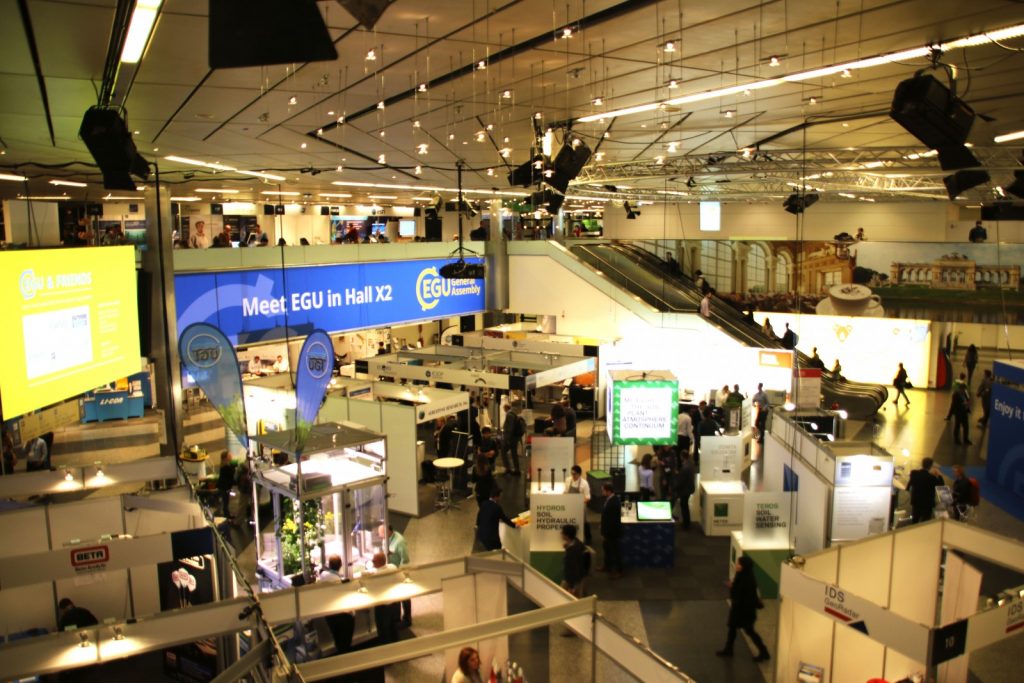
Meet your division’s representatives, members of Council, and journal editors throughout the Meet EGU sessions, which all take place at the EGU Booth in Hall X2. (Credit: EGU/Keri McNamara)
Meet EGU
Also remember to take the opportunity to meet your division’s representatives, members of the Union Council, and journal editors throughout the Meet EGU sessions, which all take place at the EGU Booth in Hall X2 on the Brown Level. Today you can visit:
- Ocean Sciences division president (Karen Heywood), 10:15–10:45
- Biogeosciences division president (Giuliana Panieri), 10:45–11:30
- Climate: Past, Present & Future division president & PC Officer for Travel Support (Didier Roche) and division ECS representative (Carole Nehme), 11:45–12:30
- Chief executive editor of Solid Earth (Lotte Krawczyk), 14:00–14:45
- Soil System Sciences programme group chair (Claudio Zaccone), 15:00–15:45
- EGU Treasurer (Patric Jacobs), 15:45–16:15
- EGU President (Alberto Montanari), 16:15–17:00
- outgoing Atmospheric Sciences division president (Annica Ekman), 17:00–17:45
Have an excellent day!
The EGU General Assembly is taking place in Vienna, Austria from 7 to 12 April. Check out the full session programme on the General Assembly website and follow the Assembly’s online conversation on Twitter at #EGU19.

